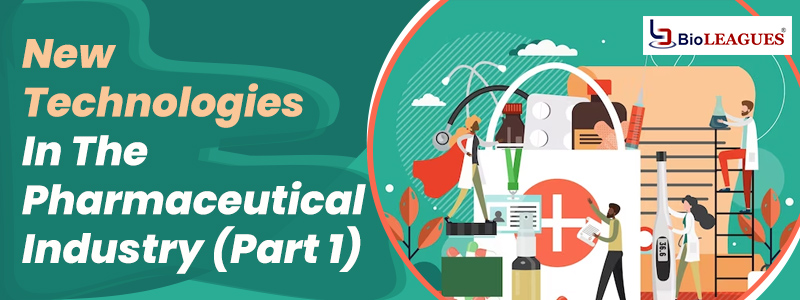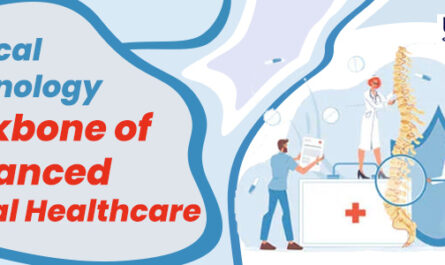Pharmaceutical Technology
Pharmaceutical technology involves the utilization of scientific knowledge or technology specifically for application in the pharmacy, pharmacology, and the pharmaceutical industry. It includes methods, techniques, and instruments for the manufacture, preparation, composition, distribution, packaging, and storage of pharmaceuticals and other preparations used in diagnostic and determinative procedures and in the treatment of patients.
Technology Innovation in the Pharma Industry
Production in the pharmaceutical industry has been transformed by technology. Nevertheless, pharma manufacturers are only just beginning to see the potential of creating innovative products. The actual benefits of technology in pharmaceutical production are vast, and revolutionary techniques are paving the way for a cost-effective, efficient and responsive approach to drug production.
The cost of introducing a new pharmaceutical to market is said to be over 985 million USD. The need to accelerate technology to reduce these costs is essential and innovation is essential. As the days go by numerous technologies are cropping up that are helping to revolutionize pharmaceutical manufacturing.
- Artificial Intelligence & Machine Learning
In pharma manufacturing, AI is used to collect data and calculate the most efficient processes. This then allows companies to create products and optimize the whole process. Additionally, using AI, the medical engineering processes can also be developed immensely by means of digital reformation.
When it comes to machine learning, access to patient data can help analyze individual profiles and compare drug efficacy and demand. In doing so, manufacturers can tailor their drugs to create better predictions about the use of specific drugs and their efficacy for certain individuals.
These technologies can be exploited to facilitate the virtual screening of drug compounds as an alternative to more traditional methods such as phenotypic, split, and targeted screening. By predicting the results of these pioneering drug innovation experiments, the prediction of which drug compounds are likely to be most effective and warrant further exploration and development is made possible.
Further down the drug development pipeline, it can also help pharmaceutical manufacturers decide which projects they should pursue, and it can help them calculate costs and find ingredients for manufacturing, in anticipation of future developments. The pharmaceutical manufacturing industry is constantly evolving and innovating in efforts to produce new drugs for a variety of indications and technologies such as AI and ML are a major driver of these developments.
To know more about the role of AI, ML, and other technologies such as Radiopharmaceuticals, registers you for this incredible upcoming conference.
Pharma Digitalization Using Modern Technologies
Progressive technological advancements will have an impact on the pharmaceutical industry. In the context of digitization, industrial productions are linked to modern information and communication technologies which allow an essentially self-organized production process and make it possible to obtain valuable and exploitable data. A particular sector of Industry 4.0 is the so-called Pharma 4.0 sector which aims to adapt promising and feasible approaches of Industry 4.0 to the highly regulated global environment of the pharmaceutical industry. This approach can result in significant barriers to change but also in regulations to promote a digital roadmap.
The challenges of the pharmaceutical industry are diverse. Pharmaceuticals and biotechnology companies must prepare for the future in a targeted way, including the technological advancements of digitization. All partnering CDMOs (Contract Development & Manufacturing Organizations) should follow these developments in the same way. By doing so, from the start of the process, they have the opportunity to become involved in their customers’ processes at ground level and to be a valuable partner. But how can digitalization be successful in a company?
Quality above all else, especially in the Pharma 4.0 era. In the field of high-value injectable, quality, in particular, is the first requirement. This should come as no surprise, as patients are actually injected with the very drugs that a CDMO makes for its pharmaceutical and biotech customers. Therefore, overall, every result emanating from 4.0 initiatives that have a positive impact on establishing stable and high product quality will be considered an advantage.
As a result, appropriate process performance is achieved, a set of controls is established, and the body of knowledge is continuously expanded. Since one of the main benefits of pharma 4.0 technologies is to increase the quality of business processes and make them both safer and more efficient, one approach to achieve this is to visualize many pharmaceutical production steps as a whole, with a focus on the entire value chain and potentially the entire supply chain to application.
However, digitization can hardly be implemented in one step – it must be understood as a complete program. Several sub-projects lead to an increased connection of process steps within an organization. Particularly in the pharmaceutical industry, this poses particular challenges for a business. The processes are well established and recognized by regulatory authorities and even small changes need to be re-validated. However, when these steps are implemented successfully, they have great potential for ever-higher quality and additional efficiency.
Have you discovered or carried out research about one or more of these modern technologies? Then, make full use of the journal publication opportunities that will be available at this high-level pharma conference by registering right away.




